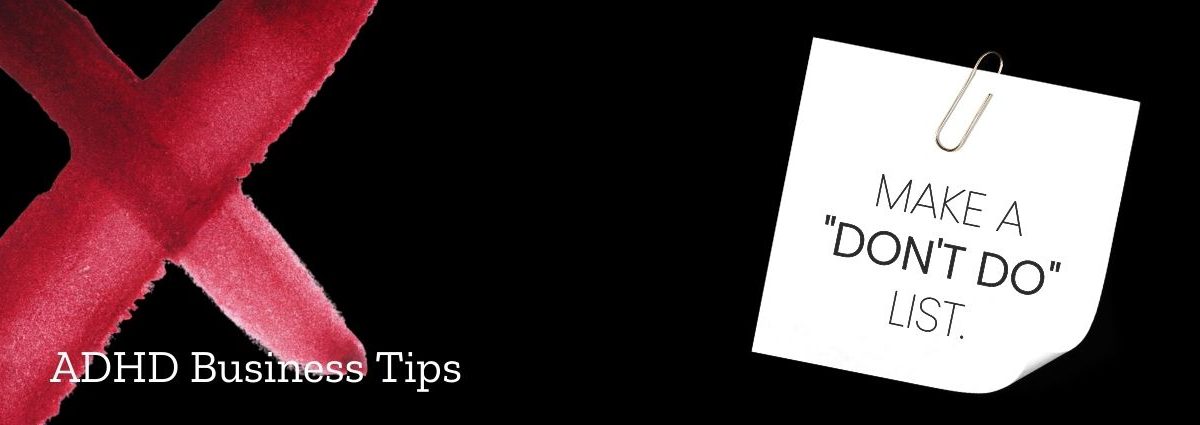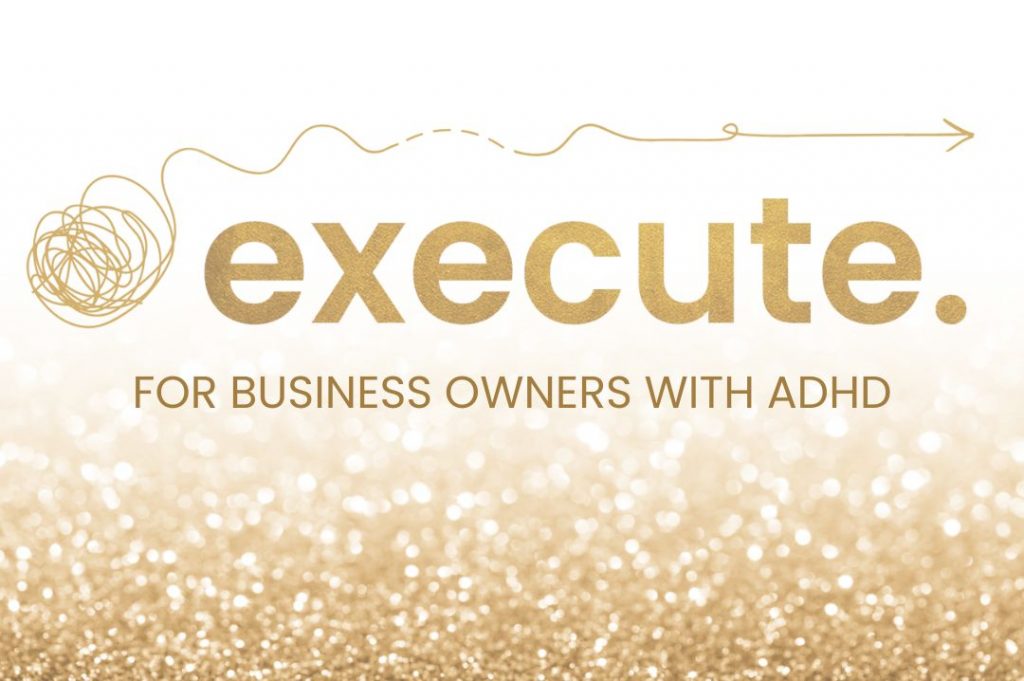“If you want to make good use of your time, you’ve got to know what’s most important and then give it all you’ve got.”
– Lee Iacocca
In a world filled with endless tasks, commitments, and distractions, finding effective ways to focus and get sh*t done is essential, and an ADHD brain brings an additional level of challenge.
I’m sure you’re familiar with to-do lists as a tool for managing and keeping track of tasks – you probably have more of those than you can count! 😉 But have you ever considered the power of a “Don’t Do” list? Just as important as identifying what needs to be done is recognising what activities and habits we’d be better to avoid. These are things we can stop doing to free up time and mental energy, reduce stress and ensure we focus on what’s important.
Today I want to introduce you to the idea of a “Don’t Do” list and how it can change your approach to productivity. You’ll discover how this simple, yet strategic approach can help you reclaim your time, eliminate energy-draining activities, and ultimately align your efforts with your true priorities. Whether you’re a business owner, a professional, or simply seeking a more balanced and fulfilling life, embracing the “Don’t Do” list could be the key to unlocking your full potential and achieving your goals with intention.
Where do I start?
Creating a “Don’t Do” list can be a powerful tool for boosting productivity and focusing on what truly matters. Here’s how you can make one:
1. Identify your time-killers
Begin by recognising activities or habits that consume your time without yielding meaningful results. For me, this includes things like excessive social media scrolling, shopping for things I don’t need and/or can’t afford yet, and getting distracted by googling way too many of the questions that pop into my head each day. You might find you have a habit of mindlessly checking your email, engaging in negative or pointless conversations, or overthinking and ruminating. It’s important here to be honest with yourself about the things that suck your time and energy.
2. Reflect on previous mistakes
Think about the tasks or behaviours that have previously led to unproductive outcomes. Reflect on the lessons learned and jot down these items to avoid in the future. For example, I know that when I’m not intentional about my social media use in the evening, it’s easy for me to lose an hour or more to mindless scrolling which is not ideal, but the flow on effect is that I get to bed later than I want and then I feel tired and more stressed the following day.
3. Prioritise core tasks
Determine your most important tasks or goals. Your “Don’t Do” list should complement your priorities by eliminating activities that divert your attention from these crucial objectives.
4. Consider energy drain
Note activities that drain your energy or motivation. These could be tasks you dread or activities that offer minimal value. Removing them from your routine can free up mental space and energy.
5. Be specific
List concrete actions or habits to avoid. Instead of vague statements like “don’t waste time,” specify actions such as “no social media during work hours”, “no Netflix on weekdays” or “no checking email before 9am”.
6. Set boundaries
This is always easier said than done, but you can start by identifying instances where you’ve allowed others to encroach upon your time excessively. Begin to establish some boundaries to protect your time and avoid overcommitting to things that aren’t important to you.
7. Focus on distractions
List potential distractions that often divert your focus, such as notifications or multitasking and create strategies to minimise these disruptions. I know that the drive to research an idea or question that pops into my head is very strong and if I’m not careful I can lose hours down a rabbit hole that might take me well away from whatever I was originally focused on. Now I keep a notebook nearby so I can keep a record of the topic I want to research so I can come back to it later when I have more time.
8. Delegate or outsource
Include on your “Don’t Do” list tasks that could be better delegated or outsourced. As a business owner, you might want to delegate administrative or repetitive tasks that will allow you to focus on higher-value activities.
9. Avoid overcommitting
Make a record of commitments that stretch your time thin. Learning to say “no” and avoiding over-committing is crucial for maintaining focus on what truly matters. I’ve been a chronic over-committer in the past and the thing that has been the most helpful in reducing my commitments has been taking the time to determine what is most important to me in my current season of life and business. Refer back to step 3 on this list or download my free eBook Say No Easily.
Tips for success
Here are a few more tips to make a “Don’t Do” list work for you:
✅ Regularly review
Your “Don’t Do” list should evolve over time. Regularly review and update it to align with changing priorities and new insights.
✅ Make a visual reminder
Keep your “Don’t Do” list visible. This can serve as a visual reminder of your commitment to stay focused on what brings the most value.
✅ Stay mindful
As you go about your day, refer to your list to prevent falling into old habits. Staying mindful of your “Don’t Do” items can help you make intentional choices and ultimately get the outcomes you’re working so hard for.
TRY IT OUT:
Grab a sheet of paper and make a short list of 3 things you would like to stop doing asap. Then give yourself 15-30 minutes to create some simple strategies to support your efforts. If you get stuck on the “how” ask a trusted friend or colleague for help!
Remember, the goal of a “Don’t Do” list is to free up time, mental energy, and resources for activities that align with your goals and priorities. By avoiding counterproductive behaviours and habits, you can create a more fruitful and fulfilling daily routine that will leave you feeling good and moving in the direction of your ambitions.
Until next week!



